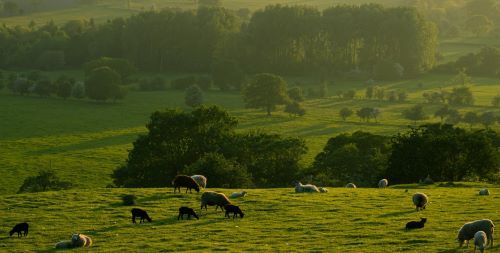
28 April 2023
Climate activists, including Extinction Rebellion, Friends of the Earth, and Greenpeace, held four days of peaceful demonstrations in London, demanding that the government end all new fossil fuel projects. Wider calls to protect nature and soils were also made during the demonstrations with ecologist Dave Goulson and wildlife broadcaster Chris Packham taking part. The protests involved more than 200 organizations and individuals.
Conservative MPs have called for an overhaul of how Natural England manages Sites of Special Scientific Interest (SSSIs), suggesting more power over the sites by ministers. This follows complaints by landowners in Devon over proposals to prevent soil and ecosystem damage from overgrazing. Concerns have been raised that an overhaul would lead to politically-motivated decisions.
Graham Stuart, Minister for Energy Security and Net Zero, confirmed the government is supporting the role of biochar in carbon capture through soils. In response to a Parliamentary question, Stuart stated that the government is funding biochar pilot demonstrators, worth £18.7 million, to enhance soil carbon capture. This will inform future government policy on using biochar as a soil improvement tool and a greenhouse gas removal method.
Positive BioCarbon company is seeking to partner with UK local authorities to use biochar on farm soils to enhance soil carbon capture and help the country achieve net-zero targets. The firm has already worked with Lancashire County Council on a pilot scheme covering six hectares of farmland, which has significant potential for carbon storage.
An investigation by Lighthouse Reports and Reporter Brasilia has highlighted that banned pesticides and fungicides in the EU are being exported to Brazil by EU companies and used on farms supplying Nestlé. These products are used on Brazilian farms that supply the international sugar market, posing a risk to human health and soil health.
There is concern in Spain over government plans to increase the flow of the Tagus river, to comply with EU regulations on river water levels. Following the current winter drought reducing soil moisture levels, the plans that will limit water diverted from the Tagus for crop irrigation, are facing opposition from farmers and politicians in the southeast who rely on the water diverted.
A new report commissioned by the Food, Farming and Countryside Commission on natural capital markets has been published. It highlights that the lack of clarity about what public and private finance can each do is hampering the potential of natural capital markets to support sustainable farming. Good regulation and protection of public benefits are required.
New research shows that solar panels can play a role in supporting soil health. Crustivoltaics involves integrating solar panels with biocrusts, a collection of mosses, lichens, and other microorganisms that grow on the surface of soil. Although this can be expensive, it could improve the sustainability of solar panels.
The BBC has taken a look at what biodiversity means and action being taken globally to improve it. Soils are key sources of biodiversity and support a wider variety of different species and organisms including fungi and earthworms. Action taken globally includes the recent UN COP15 summit on biodiversity agreement in December 2022 which mentioned soil biodiversity.